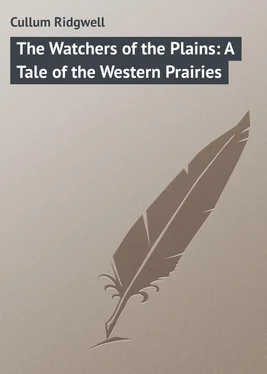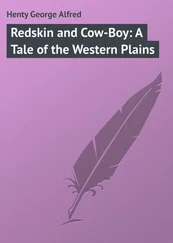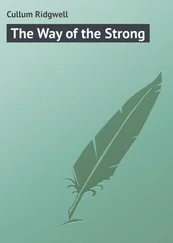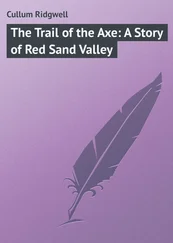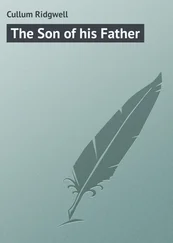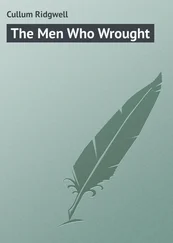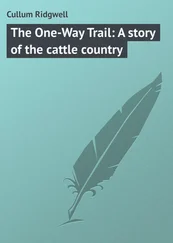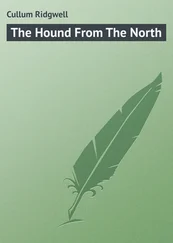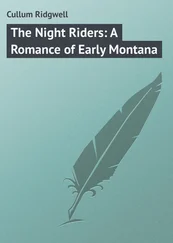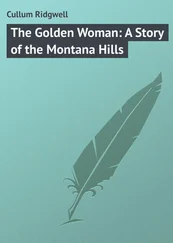Ridgwell Cullum - The Watchers of the Plains - A Tale of the Western Prairies
Здесь есть возможность читать онлайн «Ridgwell Cullum - The Watchers of the Plains - A Tale of the Western Prairies» — ознакомительный отрывок электронной книги совершенно бесплатно, а после прочтения отрывка купить полную версию. В некоторых случаях можно слушать аудио, скачать через торрент в формате fb2 и присутствует краткое содержание. Жанр: foreign_language, foreign_prose, foreign_adventure, на английском языке. Описание произведения, (предисловие) а так же отзывы посетителей доступны на портале библиотеки ЛибКат.
- Название:The Watchers of the Plains: A Tale of the Western Prairies
- Автор:
- Жанр:
- Год:неизвестен
- ISBN:нет данных
- Рейтинг книги:5 / 5. Голосов: 1
-
Избранное:Добавить в избранное
- Отзывы:
-
Ваша оценка:
- 100
- 1
- 2
- 3
- 4
- 5
The Watchers of the Plains: A Tale of the Western Prairies: краткое содержание, описание и аннотация
Предлагаем к чтению аннотацию, описание, краткое содержание или предисловие (зависит от того, что написал сам автор книги «The Watchers of the Plains: A Tale of the Western Prairies»). Если вы не нашли необходимую информацию о книге — напишите в комментариях, мы постараемся отыскать её.
The Watchers of the Plains: A Tale of the Western Prairies — читать онлайн ознакомительный отрывок
Ниже представлен текст книги, разбитый по страницам. Система сохранения места последней прочитанной страницы, позволяет с удобством читать онлайн бесплатно книгу «The Watchers of the Plains: A Tale of the Western Prairies», без необходимости каждый раз заново искать на чём Вы остановились. Поставьте закладку, и сможете в любой момент перейти на страницу, на которой закончили чтение.
Интервал:
Закладка:
This man had no love for the woods; no love even for the prairie, or his life on it. He lived a grudging existence. From his manner nothing in life seemed to give him real joy. But there is no doubt but that he had purpose of a sort which had much to do with his associations with his Indian neighbors. With him purpose served for everything else, and made existence tolerable.
There was purpose in his movements now. He could just as easily have made his way to the bridge through the open, but he chose the woods, and put up with the wet while he railed at it. And there was some haste in his slouching, loose-jointed gait which gave to his journey a suggestion of furtiveness.
At the bridge he paused, gave a quick look round, and then crossed it more rapidly still. For at this point he was in full view of the prairie. Once on the Indian Reservation, which began beyond the bridge, he again took to the cover the park-like land afforded him. Nor did he appear again in the open until he had passed the Mission and the Agency.
Once clear of these, however, he gave no more heed to secrecy, and walked boldly along open paths in the full, bright evening light. He passed in and out among the scattered tepees, speaking a word here and there to the men as he passed, or nodding a greeting. The latter being the more frequent of the two, for the Indian is a silent man.
The life amidst which he was walking was too familiar to cause such a man as he any unusual interest. Perhaps it was because he felt he had a certain underhand power with these people; like a person who loses interest in the thing which he has mastered. Certain it is that the busy homes he beheld were all unnoticed. The smoke-begrimed tepees with their great wooden trailers propped against them; the strings of drying meats stretching along under the boughs of adjacent trees. The bucks huddled, in spite of the warmth of summer, in their parti-colored blankets, gazing indolently at their squaws pounding the early berries into a sort of muddy preserve, or dressing a skin for manufacture into leggings, moccasins, or buckskin shirt. He gave no heed to the swarms of papooses, like so many flies buzzing round the tepees, whooping in imitation of their father braves, or amusing themselves with the pursuit of one of the many currish camp dogs, which, from their earliest years, they love to persecute to the limits of the poor beasts’ endurance. The totem poles with their hideous carved heads had no meaning for him, just as the dried scalps which hung from the tepee poles might have been rabbit skins for all he thought of them.
Just now his purpose was to reach the house of Little Black Fox, and this he came to at last. It was a large building; next to the Mission and Agency it was by far the largest house on the Reservation. It was built of logs and thatch and plaster, and backed into a thick clump of shady maple trees. The son was more lavish than the father. Big Wolf had always been content to live in a tepee. He was an older type of chief. The son moved with the times and was given to display.
Nevil raised the latch of the door and walked in, and his manner was that of a privileged visitor. He entered the spacious living-room without word for those he beheld gathered there. He walked to a certain vacant place, and sat down upon the mud floor. It was at once plain that he had been expected. More, it was evident that he belonged by right to that gathering.
Despite the display in the dimensions of Little Black Fox’s house the interior revealed the old savage. There was nothing civilized about the council-chamber. There was the central fire of smouldering logs, without which no Indian can exist in summer or winter. The smoke passed out through a square chimney in the middle of the roof.
In a large circle the chief’s councilors sat perched upon their haunches and swathed in their blankets. There was not a seat or table there. They sat in their councils as their forefathers had done before them, their leader in their midst with nothing but his youth to distinguish him from those who were his subjects.
The debate proceeded in its spasmodic fashion. There was no haste, no heat like in the debates of civilized folk. Each man was listened to in respectful silence, which might have served as an example to modern legislatures. Nevil spoke like the rest in their low, musical tongue. Whenever he spoke it was noticeable that the great, wild eyes of the chief were turned upon him with interest. But even he seemed a mere unit in the debate, no more and no less, unless it were that Little Black Fox was more influenced by what he said than by what was said by the others.
At length, well on into the night, the meeting drew to a close. The business in hand had been threshed out and a decision arrived at. The warriors and the men of “medicine” filed slowly out. Even in this there was a certain formality and precedence. Each man addressed his chief, shook hands, and passed through the door. And no two went out together.
When the last had gone Nevil and the chief remained alone in the bare room. Little Black Fox rose from his pile of skins and stood erect. He was a mere youth, but of such shape and appearance that one could easily understand the epithet “romantic” Rosebud had applied to him. He stood at least four inches over six feet, and dwarfed even Nevil’s height. But it was in the perfect symmetry of his lithe, sinuous body, and the keen, handsome, high-caste face where his attractions lay.
His eyes were the eyes of the untamed savage, but of a man capable of great thought as well as great reckless courage. There was nothing sinister in them, but they were glowing, live eyes which might blaze or soften in two succeeding moments, which exactly expresses the man’s character. He was handsome as Indian men go. Not like the women. They are often beautiful in a way that appeals to any artistic eye, but the men are a type for study before they can be appreciated.
This chief was in the first flush of manhood, and had attained nothing of the seared, bloated appearance which comes to the Indian later in life. His face was almost as delicately chiseled as his sister’s, but it was strong as well as high caste. The eagle beakishness of his nose matched the flashing black eyes. His mouth was sensitive and clean-cut. His forehead was high and broad, and his cheeks were delicately round.
Nevil became a wretched, unkempt type of manhood in comparison. In form, at least, this chief of twenty-one years was a veritable king.
He smiled on his white councilor when the last of his own people had departed. He thrust out a slim, strong hand, and the two men shook hands heartily.
“It is slow with many in council,” the chief said, in his own smooth-flowing tongue. “You, white man, and I can settle matters quickly. Quicker than these wise men of my father.”
There was a flash of impatience in his speaking eyes. Nevil nodded approval.
“They think much before they speak,” he replied, in the language in which he had been addressed. He, too, smiled; and in their manner toward each other it was plain the excellent understanding they were on.
“Sit, my white brother, we have many things for talk. Even we, like those others, must sit if we would pow-wow well. It is good. Sit.” Little Black Fox laughed shortly, conceiving himself superior in thought to the older generation of wise men. He was possessed of all the vanity of his years.
They both returned to the ground, and the chief kicked together the embers of the council-fire.
“Tell me, brother, of Wanaha,” this still unproved warrior went on, in an even, indifferent voice; “she who was the light of our father’s eyes; she who has the wisdom of the rattlesnake, and the gentle heart of the summer moon.”
“She is well.” Nevil was not expansive. He knew the man had other things to talk of, and he wanted him to talk.
Читать дальшеИнтервал:
Закладка:
Похожие книги на «The Watchers of the Plains: A Tale of the Western Prairies»
Представляем Вашему вниманию похожие книги на «The Watchers of the Plains: A Tale of the Western Prairies» списком для выбора. Мы отобрали схожую по названию и смыслу литературу в надежде предоставить читателям больше вариантов отыскать новые, интересные, ещё непрочитанные произведения.
Обсуждение, отзывы о книге «The Watchers of the Plains: A Tale of the Western Prairies» и просто собственные мнения читателей. Оставьте ваши комментарии, напишите, что Вы думаете о произведении, его смысле или главных героях. Укажите что конкретно понравилось, а что нет, и почему Вы так считаете.
